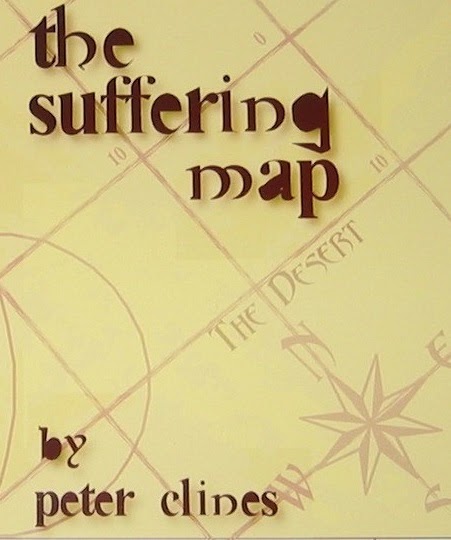Never say never…
I wanted to blather on about quitting for a couple of minutes. There comes a point in many endeavors when you realize you’re not getting ahead. That all the time, effort, and enthusiasm that’s been expended on this project just isn’t enough. For one reason or another, I didn’t make the cut. The team picked that skinny kid with the limp and the glasses over me.
At which point, I need to make a choice. Do I keep trying to get on this team? Do I continue throwing myself unto the breach? Forging on despite all odds with the strength of my convictions?
Or should I give up?
Honestly? After working at this writing thing on one level or another for a good chunk of my life…
I think it’s time to quit.
If I’ve spent the past decade trying to get any publisher in the world to just look at one of my book manuscripts, and they’re not interested… that’s a sign. If I’ve spent thousands of dollars on screenwriting classes and books and contests over the past ten or twelve years, but I still don’t even have a toe in the door…I should consider saving my money this year. When I submit a story to a hundred magazines, journals, and anthologies and get back a hundred rejections… I need to take that hint.
I should quit. Cut my losses. Stop beating my head against the wall, demanding to be recognized, and move on.
No, hold on. Don’t leave yet. Keep reading ‘till the end.
What I’m getting at ties back to an idea I’ve talked about a few times here. I need to be able to look at my own work honestly and objectively. Knowing when to give up on a project is part of that. After querying a hundred or so reps or editors and not getting a single nibble, I need to consider the fact the problem may not lay with them. My writing may be perfect, it may be gold, it may be what everyone in America is dying for. At the moment, though, for one reason or another, it’s not what those specific people—those, dare I say it, gatekeepers—are looking for. And, right or wrong, they’re the ones who make that decision.
Now… here’s that important part.
I’m not saying I’m going to stop writing altogether. This doesn’t mean I should never touch a keyboard again or that it’s time for me to forget the big leagues. It’s just time to sit back and look at what I’ve done and how I’m doing things. Maybe the problem is the characters. Maybe it’s dialogue. Perhaps even something as basic as an overwhelming number of typos. Heck, it could just be my cover letter. At the end of the day, something is holding me back, and that needs to stop happening.
I’ve met people who wrote one novel way back in college and have spent the past twenty years sending it to agent after agent, publisher after publisher. They haven’t changed a single word since they first set it down on paper. They haven’t written anything else since (“Why should I write something else nobody’s going to pay me for?”). They’ve just got that one novel going out again and again and again…
Same thing in Hollywood. People write a screenplay over a long weekend, never polish or revise it, but try to use it as a calling card for years. I know of a guy on the contest circuits who pushed the same script for almost a decade. He hasn’t done anything else in the meantime, just sent that same script to contest after contest, waiting for fame and fortune as if winning was a lottery and he had to keep playing his lucky numbers.
Knowing when to quit and move on isn’t a weakness. It’s not a flaw in my approach. It’s a strength. It’s the only way I can grow and learn new things, because I won’t get any better if I keep rewriting the same manuscript again and again for decades. Sometimes you just have to give up on something.
It took me almost eleven years to finish my first solid novel, The Suffering Map. Not an idea, not a work in progress, not something I’ve been poking at. A complete, polished book manuscript, first page to last page. Beginning, middle,and end. Yeah, that’s a long time, but close to a decade of that was the film industry convincing me to go work on screenplays instead. It probably only took about two years of actual work.
So, eleven years of on-again-off-again work, and then the querying. Letter after letter, rejection after rejection. Go through it again, create a new draft, and then start the letters again. Some folks asked to see it (one or two of them were powerful, well-placed folks). Many letters and emails were traded back and forth.
In the end, though, after almost a dozen very major revisions, all of them passed on it. And then I realized, this was done. I’d been working on that book on and off since graduating from college. It was time to expand my horizons and write something else.
And that something was an early draft of a book about a government teleportation project gone wrong. Which I followed up with a book about superheroes fighting zombies. And then a few things since then.
If I’d stayed focused for years on that novel no one wanted to see, though, I wouldn’t’ve done any of it. I’d still be back there at square one. And my list of published credits wouldn’t be the size it is now.
I’m not saying I’ll never go back to The Suffering Map. Many writers will tell you if your screenplay or novel gets rejected, put it in the drawer and wait a few years. I’m also not saying it will sell in a heartbeat if I decide to try again in five years. For now, though, I’ve given up on it.
So the next time you’re frustrated by months and months of trying to find a home for your work… stop and really think about it. Maybe it’s time to move on and try something different. Something new.
Because that next thing could be the big thing.
Next time might be a bit delayed. Sorry. But when it happens, let’s flip this around.
Until then… go write.










